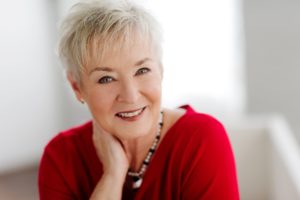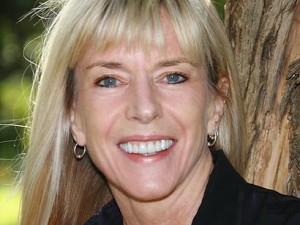Course Description
Next course: January 17 - 18, 2026
Download the course PDF here.
Our next Lessac Kinesensics seminar is January 17 - 18, 2026. This course will be an online Webinar. Also, we have now discounted our price for both SLPs and non-SLPs:
$299 for two day Intro for SLPs
$299 for two day Intro for Actors, Singers, & non-SLPs
Days 1 & 2 Intro provides basic training in Lessac Kinesensics for application to speech-language pathology. The course is designed for SLP clinicians and clinicians in training, and is an abbreviated version of longer, more intensive courses offered for those seeking recognition as Lessac teachers for expanded applications. The course will provide exposure to Lessac body, voice, and speech training with special attention to use for individuals with voice and possibly fluency disorders. Data will be provided on the acoustics and aerodynamics of Lessac Kinesensic body, voice, and speech “energies,” as well as on outcomes from clinical trials in LMRVT for individuals with phonogenic voice disorders.
Learning outcomes: At the conclusion of the course, participants will be able to:
- Demonstrate three Lessac body energies --“NRGs” and three voice/speech energies-- “NRGs.”
- Describe application of these “NRGs” to individuals with voice disorders of a variety of origins, in particular phonogenic origins, including findings from clinical trials.
- Describe acoustic and aerodynamic data associated with three body “NRGs” and three voice/speech “NRGs.”
The participant will prepare a voice text and a section to be sung. At the end of the seminar they will reflect on how their voice felt different doing those tasks after using the strategies taught in the seminar.
To learn more about Lessac Kinesensics, please click or tap our Logo -> ![]()
Please scroll down for Presenter Bios, Daily Schedules, and Confirmation and Cancellation information.

Day 1 & 2 Intro are offered for 1.4 ASHA CEUs (Intermediate level, Professional area)
Day 3 Advanced is offered for 0.6 ASHA CEUs (Intermediate level, Professional area)
Sign-Up
Nancy Krebs

Nancy Krebs, Lessac Master Teacher
Education: B.A. in Theatre, University of Maryland, Baltimore County
Graduate Training: Dallas Theater Center (Trinity University)
Certification in the Lessac Voice & Body Training, 1993 (Master’s
Equivalent in Voice Training, Lessac Institute)
Master Teacher Certificate: Lessac Voice & Body Training, 2002
Member of AEA, SAG, AFTRA, VASTA, BMI
Nancy graduated in 1972 with a B.A. in Theatre from the University of Maryland, Baltimore County; and went on to graduate school at the Dallas Theater Center under the leadership of Paul Baker. She has been a professional actor/singer since 1975. Her acting credits include: TV series--Once Upon a Town (Emmy award), The Bloomin’ Place, One Life to Live; over 150 professional productions in regional theatres such as Alaska Repertory Theatre, Center Stage, Meadowbrook Theatre, The Classic Theatre of Maryland, summer stock as well as dinner theatres and Inter-Generational theatres in the Baltimore/Washington area; numerous voice over commercials and narrations as well. As an author, Ms. Krebs has contributed to the texts: Voice and Speech Training in the New Millenium: Conversations with Master Teachers by Nancy Saklad, Collective Writings on the Lessac Voice and Body Work: A Festschrift by Marth Munro, Sean Turner, Allan Munro and Kathleen Campbell and Play with Purpose: Lessac Kinesensics in Action edited by Marth Munro, Sean Turner Allan Munro. She is currently co-authoring a new book using the Kinesensic strategies to teach non-English Speakers how to become more fluent and expressive in North American English speech. She is also a singer/songwriter/musician and recording artist, having released seven albums of critically acclaimed original Christian meditational music: The Journey, Love makes Room, Come to the Stable, Simple Gifts, Songs from the Heart and Moved by God which receive air-play around the world.
She has been a Certified Lessac Master Teacher since 2002 and has served in many capacities for the Lessac Training & Research Institute since that year— as President, Board member, and Master Teacher Council representative. She received the Lessac Leadership Award in 2011 and continues to be a part of the Master Teacher Team. She has been the Director and Co-Director of Lessac Intensives both in the U.S. and abroad, served on the faculty of the Four Week Workshop, teaching with Arthur Lessac and Senior Master Teacher Sue Ann Park from 1995-2005; and has led and developed numerous shorter Kinesensic-based workshops throughout the years since 1995. She has worked as a vocal/dialect coach for over 200+ professional productions in the Baltimore-Washington region since 1994. She taught a full four-year Lessac-based voice curriculum in the Theatre Department of the Baltimore School for the Arts from 1981-2019, and currently operates her own voice studio —The Voiceworks Studio in Severn, Maryland.
Kittie Verdolini Abbott

Katherine Verdolini Abbott, PhD., CCC-SLP, M.Div., is Professor of Communication Sciences and Disorders at the University of Delaware. Prior academic appointments include the University of Iowa, Harvard Medical School, and the University of Pittsburgh. She received training in the Lessac approach to body, voice, and speech, working personally with the approach’s founder, Arthur Lessac. She developed Lessac-Madsen Resonant Voice Therapy (LMRVT), which is widely recognized as an important tool in voice therapy for a range of conditions affecting voice, and for which she has received funding for basic and applied science from the National Institutes of Health since 1997. Dr. Verdolini Abbott is a Fellow of the American Speech-Language-Hearing Association, from which she also received the highest Honors in 2009. She is, herself, a singer and actor, committed to the translation of both basic science and performing arts traditions to the practice of speech-language pathology. For Kittie's full bio, please visit our About page.
A Taste of Lessac Kinesensics for Speech-Language Pathology:
A Dialogue and a Workshop
(SIDEBAR: MORE TOOLS FOR YOUR TOOLBOX)
Kittie Verdolini Abbott, PhD, CCC-SLP, MDiv and Lessac Master Teacher Nancy Krebs
Day 1
DAY 1 (Participants experiences Lessac Kinesensic Training)
Morning Session:
10:00-10:30 Introduction to the overall experience and relevance to SLP community. Kittie – breaks, as needed, CEUs, Hear participants share their goals and pronouns, etc. Participants announce names, pronouns, their hopes/goals for the course, their needs, if any.
10:30-11:15 Introduction to the Lessac principles, inner vs. outer environment, Our first familiar event and organic instruction – breathing to upright orientation, Body Pain Relievers/Relaxer-Energizers
11:15-11:30 Break
11:30-1:00 3 Relaxer/Energizers into the 3 Body Energies (NRGS*), Buoyancy-Potency-Radiancy-Inter-Involvement With their ‘dialects’, *NRG--Neural Regenerative Growth and acronym for ‘Energy’
1:00-1:30 Lunch Break
Afternoon Session:
1:30-2:00 Introduction to the Principles of Lessac Voice Training (w/relevance to SLP), Resonance, wave reflection—hearing what you feel, rather than feeling what you hear. (Tuning fork, hearing vs. ‘feeling’, kinesensic learning, Familiar events, organic instruction for voice, 3 Vocal NRGs)
2:00-3:15 Consonant NRG Introduction from the familiar event of humming into the Strings N, M, V, Z, S, F and the tappable instruments of the B, P, D, T, G, K with – Tasting-Music Making and Communicating
3:15-3:30 Break
3:30-3:40 Vocal Tune-up with Rounds using the strings./ shakeout re-energizing
3:40-4:00 Continuation of Consonant NRG adding Body NRG ‘support’
4:00-4:30 Introduction to Tonal NRG bridging from the Y French Horn (Y Buzz) Benefits of Tonal NRG
4:30:4:45 Break
4:45-5:15 Tonal NRG (+Y and the Call) (head orientation throughout)
5:15-5:45 Structural NRG introduction (Woo-Woe-War-Wah-Wow) the creation of the flexible ‘sound box’ and the ‘yawn’ dynamic
5:45-6:00 Q & A --assignment explanation
Assignment: Review what we’ve done today, use the poems to expand your sense of ‘kinesensic’ (the ‘feeling process’) understanding of Consonant NRG. Also include exploring them with a body NRG present--then change the body energy and explore the poem again--see what differences you might feel taking place.
● Prepare one single line for tomorrow—memorize it End of booklet for one line explorations page 52-53
● Prepare a song for tomorrow, or a piece of a presentation —just one 16 bar section is enough or a few paragraphs—this does not need to be memorized
Hand out one line explorations for tomorrow
Day 2
DAY 2 (Participant experiences Lessac Kinesensic work, con’t)
Morning Session:
1:30-2:45 Continuation of Structural NRG into the 5-step progression with sentences etc.
Extravagant—full use of the yawn, slow in tempo
Heightened—full use of the yawn, quicker in tempo
Social—reduction of the yawn space, same tempo as Heightened
Conversational—same reduction in yawn space, quicker tempo
Intimate—moving with dispatch, with a feel of yawn space within
2:45-3:00 Break
3:00-3:30- Applications: The Body Work--What the Body Training can do for patients/clients/students: energized relaxation, flexibility, focus and concentration
Activity: take participants through a clinical model of using ‘pleasure smelling’, and Body NRG application with a ‘patient’/client/student, several applications with participants
3:30-4:00- Applications: The Voice Work--what the Vocal NRGS/Training can do for patients/clients/students:
The Consonant Energy Orchestra: Fluent intelligibility without rote drill, Melodies, rhythms, and sustained tonal colors, Variety and Contrast, Interpretation, LMRVT is based on consonant energy, which helps the resonant voice
Activity: Begin with a hypothetical ‘problem’—lack of intelligibility on certain consonants—and take participants through a clinical model of implementing Consonant NRG to improve the outcome in a short session
4:00-4:10 Break
4:10-4:50 Master Class using STR and Tonal NRGs in song: Optimal, flexible mouth space for all speech and singing sounds, Relaxed and energized jaw, tongue, lips, throat, larynx, Quality production and identification of non-regional vowels/diphthongs, increased sound-wave reflection for enhanced tonal quality, power without pain, strength without strain, reaching the higher and lower notes
Activity: participants offer a song for exploration and application of how STR and Tone impact the rehearsal and performance of a song
-
-
Sing the song without sound, just feel the structure of the lyrics slowly (everyone) responses
-
Sing the song focusing on adding more ‘yawn space’’
-
Sing the song focusing on adding more bone conducted feel
-
4:50-5:20 Text/Song Explorations: Connecting body and vocal energies to the emotional experiencing system—a new way to explore text (as it pertains to patient/client assistance)
Send participants into breakout rooms in pairs. They can practice giving feedback for problems suggested.
Activity: using prepared material that relates to the patient/client, demonstrate how ‘rehearsing’ the skills learned in one of the scenarios above could bridge the introduction of material to application of skills in non-prepared/extemporaneous situations (i.e. real life)
LMRVT addendum
5:20-5:30 Course evaluation
5:30-6:00 Final questions, improv, adjourn
The participant will prepare a voice text and a section to be sung. At the end of the seminar they will reflect on how their voice felt different doing those tasks after using the strategies taught in the seminar.
Confirmations and Cancellations
Confirmation:
Confirmation of registration will be sent by e-mail approximately one day in advance of course start date, along with links to download course handouts and knowledge assessment.
Cancellation Policy:
There are no cancellations for this course. No fees will be returned. We are not responsible for any adverse events relating to travel to the course. We reserve the right to cancel the course prior to the course date with full refund of course fee if registrations are insufficient to support the course. If we cancel or reschedule, we are not responsible for any travel expenses or penalty fees incurred by the registrant.
Financial Disclosures
Disclosures: Financial disclosures:
Ms. Krebs receives compensation for her voice and speech work through public and private venues teaching the Lessac work. Dr. Verdolini Abbott receives royalties for her LMRVT products, including clinician and patient manuals, through Plural Publishing. She also receives royalties for a text she co-authored with Dr. Ingo Titze, Vocology, published through the National Center for Voice and Speech. None of these products will be sold for the purposes of the present course.
Non-financial disclosures:
Dr. Verdolini Abbott serves as reviewer for peer-reviewed submissions to several professional journals and for the National Institutes of Health. Ms. Krebs has no existing relevant non-financial relationship.